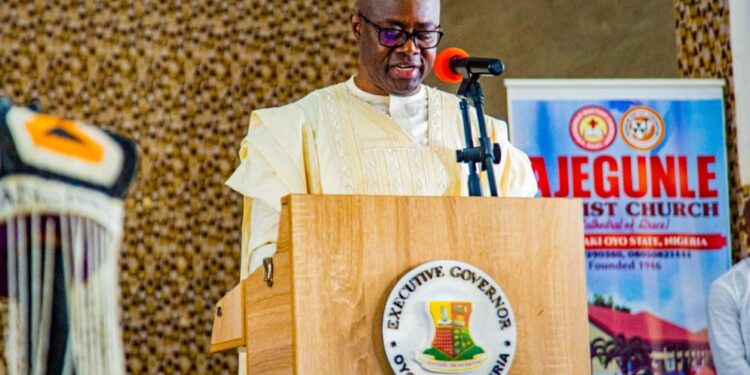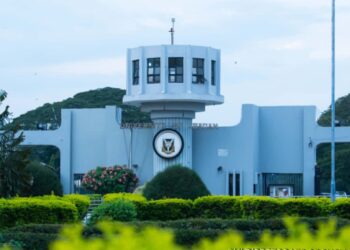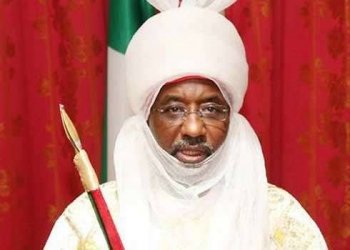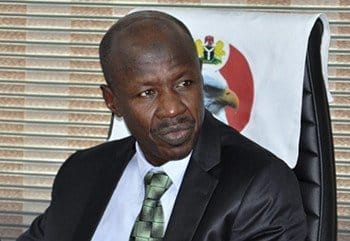Oyo State governor, ‘Seyi Makinde, has declared that there will be a major overhaul of the state’s education infrastructure in 2025. He noted that the government has rearranged resources to do more for the sector.
The governor maintained that his administration has remained committed to improving the sector and has been achieving some results. However, it is set to do more to improve the all-important sector.
Governor Makinde stated this on Saturday during a media chat on the Broadcasting Corporation of Oyo State (BCOS), which is also broadcast by several radio stations across the state.
The governor, who declared that a minute of silence be observed for the 35 children who lost their lives in a stampede in Ibadan on Tuesday, described the incident as a monumental tragedy.
Governor Makinde noted that the incident and the Bodijaj explosion, which took place in January 2024, would have been avoidable if everyone had done the right things.
He added that contrary to claims that the suspects arrested in connection to the explosion had been let off the hook, their matter has been before the appropriate authority, and the law is taking its course. However, it may be grinding slowly.
Governor Makinde explained his administration’s determination to invest more in improving the education sector. He said his government has consistently exceeded the UNESCO benchmark for budgetary allocation to the sector because it believes education should receive priority attention.
The governor once declared that the state government would need close to N60 billion to address the needs in the state’s education sector. He added that though his government had been spending much on education, more still needed to be done.
He said, “We are trying to rearrange our resources to do more for the education sector. It is not for fun that we have exceeded the UNESCO-recommended figure since I came in.
For tertiary institution, I can say we are doing well, and I am satisfied.”
Governor Makinde spoke on his administration’s commitment to expanding the state’s economy. He said his government would continue to act in the best interest of Oyo State residents.
However, they must also realise that the government will have to strike whenever it has an opportunity to break the cycle of poverty, even when that decision seems harsh to the people at the time.
He added that the government has taken several steps to overcome the limitations faced by past administrations in economic expansion. He pointed out that the creation of housing estates and the planned corridor on the Senator Rashidi Ladoja Circular Road, among other steps, is part of the steps the government takes, which will benefit the state’s economy and its people soon.
“Now, we have too many mouths to feed. How do we break out of the cycle of poverty? I want the people to know that this is their government, and we will continue to do things in the people’s best interest. But people should know that when you have the opportunity to make a lasting impact, you must strike.
“The vision of our founding fathers is not that of poverty. And those who have tried to develop the state had limitations, which we are trying to remove. We must produce more, expand our economy, and provide opportunities for many people, irrespective of their political leanings and religions.
“Look at the issue of the Circular Road and some of the places we are opening up for development, and some people describing me as a land grabber. I am not a land grabber. I firmly believe that it is only an idiot who will continue to do something the same way and expect a different result. I believe that our leaders in the past tried their best.
“It is even the land grabbers calling me a land grabber. Some people are being investigated right now.
“People may not understand the concept of the circular road. They thought it would be like Iwo Road to Beere. No. It will be the very first motorway in Nigeria.
“The 32km stretch from Tech U to Badeku only has two exit points. How we want to develop the place requires that there must be a corridor.”
The governor also noted that his government has ensured the steady development of the state over the last five years.
He stated that the state’s budget performance has improved drastically over the years, saying, “We realigned the budget immediately we came in 2019. With that, we achieved about 48 per cent of the budget performance.
Our first full budget was in 2020 before COVID-19 hit the world, and, at the end of the year, we still did well to achieve about 60 per cent.
“Right now, we are well over 70 per cent. That is why you will notice that we have had stability regarding how projects are executed and the people’s liveability in the state.”
Governor Makinde also used the occasion of the media chat to clarify his position on the controversial Tax Reform Bill by the Federal Government, noting that he was not opposed to the tax reforms but that the Federal Government needed to engage with a wider array of stakeholders to achieve meaningful reform.
The governor, who was part of those who briefed the media on the position of the National Economic Council on the bill, following which a section of the public criticised him for opposing the tax reform bill, said Nigerians should learn to focus on the message rather than the messenger.
“At the level of the National Economic Council, we asked the Chairman of the Presidential Task Force a question about the whereabouts of the bill, and he said that it was already at the National Assembly. I said if that was the case, why are you just coming here for us to debate and give you the approval prayed? It amounted to putting the cart before the horse.
“It was an agreement reached unanimously at the NEC meeting: withdraw this bill from the National Assembly and let us have a wider consultation. If people have reservations here and there, it is national, and you can seek alignment. And when you align, it may be in the original form, or you may have to tweak it to accommodate whatever the stakeholders say.
“I was asked to be part of the people that would brief the press, and my bit was to explain our decision on why the bill should be withdrawn so that consultation could happen with stakeholders, but some people just focused on the messenger as opposed to focusing on the message.”










